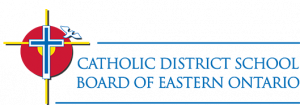How to Protect Yourself and Your Children from Respiratory Illnesses
Shared on behalf of the EOHU and the Leeds, Grenville and Lanark District Health Unit
Dear Parents/Guardians,
As we head further into the fall season and start spending more time indoors, the number of people affected by respiratory illnesses like the common cold, the flu, respiratory syncytial virus (RSV), and COVID-19 increases. However, there are measures you can take to help prevent the spread of viruses and keep your family healthy this respiratory illness season.
Staying Up to Date on Immunizations
Respiratory viruses can cause serious illness in children and individuals who are immunocompromised. The flu and COVID-19 vaccines are the best way to protect yourself and your children and are available for everyone aged 6 months and older. The vaccines are available through your healthcare provider and local pharmacies. Appointments may also be available through your local public health unit.
For more information on receiving a flu or COVID-19 vaccine in your region, visit:
- Leeds, Grenville & Lanark Region: Immunization for All Ages
- SDG, P-R, and the City of Cornwall: Flu Season is Near… Now’s the Time to Get Your Flu Shot! for information about the flu vaccine and How and Where to Get a COVID-19 Vaccine for information about the COVID-19 vaccine.
Other Measures to Prevent the Spread
Besides making sure your children are up to date on their immunizations, remind them to take the following measures to help prevent the spread of respiratory illnesses:
Cover their mouth with their sleeve or elbow when they cough or sneeze, not their hands.
- Wash their hands frequently with soap and water. If they don’t have soap and water, they can use hand sanitizer to clean their hands.
- Avoid touching their face, including their nose, mouth, and eyes with unwashed hands.
- Stay home if they’re feeling sick and complete the self-assessment tool for guidance on returning to school. They should also avoid spending time with individuals who are at higher risk of severe illness, including young children and infants, older adults and anyone who is immunocompromised.
- Wear a mask if they must go out while sick and avoid non-essential activities where they need to remove their mask. When symptoms have improved and they return to their regular activities, they should wear a mask for a period of 10 days from symptom onset.
It’s also important for parents to keep in mind that respiratory illnesses pose a bigger threat to young children and infants, so try to keep them away from large crowds as much as possible.
How to Treat Respiratory Illnesses
Despite taking all the recommended measures, your children may still get sick from time to time. In most cases, respiratory illnesses can be treated at home using over the counter medications. If their symptoms persist or worsen, contact their healthcare provider, or call 811 to speak to a registered nurse. The service is available 24 hours a day, 7 days a week.
If your child starts experiencing the following symptoms, call 911 or take them to an emergency room immediately:
- Working hard to breathe
- Bluish skin
- Unable to breastfeed or drink
- Very sleepy or difficult to wake
- Peeing less than usual
- Fever with rash
- Seizures or convulsions
- Fever in an infant younger than 3 months
For more information about how to keep your family healthy this respiratory illness season, visit EOHU.ca/Respiratory and healthunit.org/health-information/covid-19. We also encourage you to consult the attached Prevent the Spread of Respiratory Illnesses! factsheet.
Kind Regards,
Original signed by:
Dr. Paul Roumeliotis, MD, CM, MPH, FRCP(C), CCPE
Medical Officer of Health and Chief Executive Officer, Eastern Ontario Health Unit
Dr. Linna Li, MD, FRCPC
Medical Officer of Health and Chief Executive Officer, Leeds, Grenville and Lanark District Health Uni
